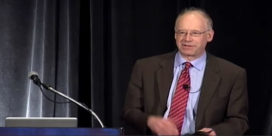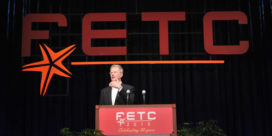Alan November: What’s your plan for making every home a center of learning?
The 2012 Tech-Savvy Superintendent Awards ceremony featured a keynote speech from Alan November, a former classroom teacher and ed-tech pioneer who co-founded the education consulting firm November Learning.…






